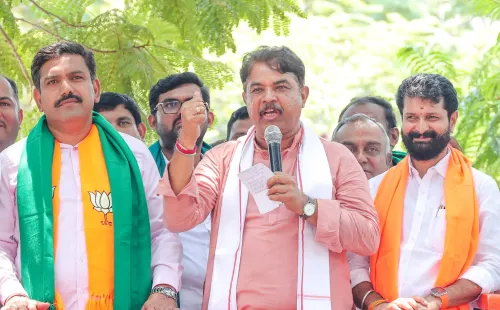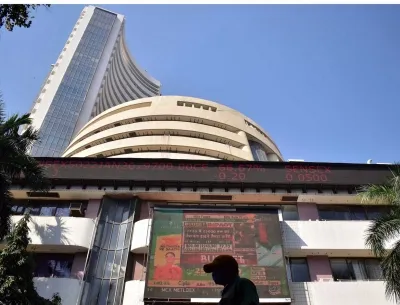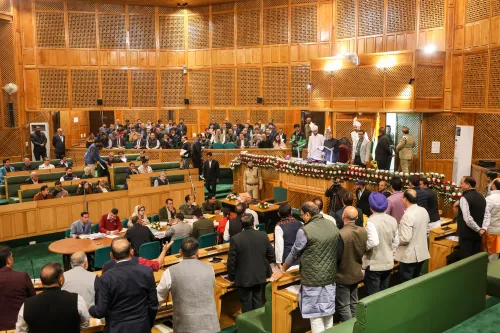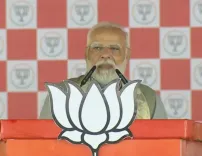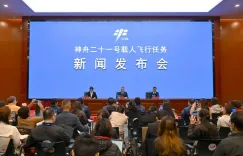R. Ashoka Criticizes Siddaramaiah Administration Over Karnataka Budget; Claims SC/ST Funds Mismanagement
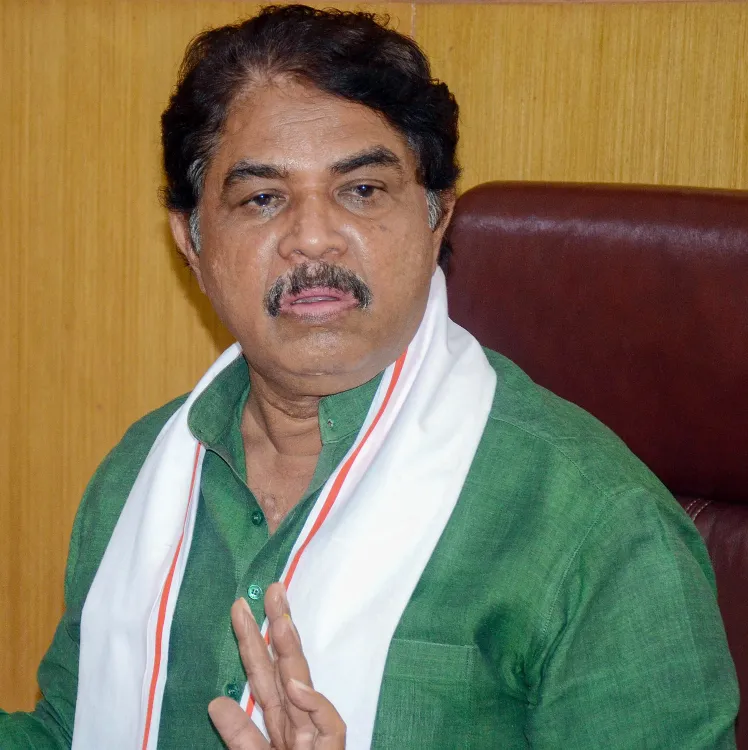
Synopsis
Key Takeaways
- R. Ashoka claims SC/ST funds misused by the Karnataka government.
- Concerns raised over lack of development in the budget.
- Rising debt levels attributed to Siddaramaiah's leadership.
- Criticism of appeasement politics influencing budget priorities.
- Call for clarity on the situation of SC/ST communities.
Bengaluru, March 14 (NationPress) The Leader of the Opposition R. Ashoka has criticized the Congress-led government in Karnataka, asserting that it has not fulfilled numerous commitments made in the prior year's Budget. He alleged that the funds designated for Scheduled Castes and Tribes have been misappropriated, with appeasement politics taking precedence.
Ashoka emphasized that the government must address these issues and insisted that no new taxes should burden the citizens in the upcoming year.
During the Budget discourse in the Legislative Assembly on Thursday, Ashoka remarked: "This is not a visionary budget; it is an emergency budget. It lacks emphasis on job creation and economic advancement. Although the budget poetically references providing a sip of water, students are instead demanding poison due to insufficient grants for universities."
He noted that even Congress MLAs have voiced concerns regarding inadequate funding, citing MLA Raju Kage who claimed he would take drastic measures in the Vidhana Soudha. Anganwadi and ASHA workers are similarly expressing their frustrations, he added.
The capital expenditure is at 17.8 percent, while the annual debt repayment totals Rs 26,474 crore. The revenue deficit is Rs 19,262 crore (0.63 percent), and the cumulative debt burden has escalated to Rs 7,64,655 crore (24 percent).
During the BJP administration in 2021-22, Rs 80,641 crore was borrowed, even amidst a 50 percent revenue decline due to the COVID-19 pandemic. In 2022-23, borrowing decreased to Rs 44,549 crore. However, under Siddaramaiah's leadership, borrowing has surged—initially Rs 90,280 crore, followed by Rs 1,07,006 crore, and now Rs 1,16,000 crore. Currently, the total debt is Rs 7,81,095 crore, with CM Siddaramaiah individually accountable for Rs 4,91,000 crore, representing 63 percent of it, Ashoka charged.
Capital expenditure has seen a gradual decline over the last two years, with development funding not being prioritized. Last year's revenue forecast was Rs 1.89 lakh crore, which was not achieved. This year, the government aims for Rs 2.08 lakh crore, a target Ashoka deemed unrealistic. The excise department has been assigned a target of Rs 40,000 crore, hinting at an encouragement of alcohol consumption.
"The issue is not borrowing, but rather the application of the borrowed funds," he stated.
In 2017, Siddaramaiah, while serving as CM, mentioned in the Assembly that loans should be taken based on financial capacity and utilized for asset creation. Yet, the current Congress government is allegedly using borrowed funds for political ends and electoral promises instead of for development. Previously, Siddaramaiah opposed using loans for non-developmental expenditures, but his stance appears to have changed, Ashoka alleged.
The budget document refrains from explicitly indicating tax increases. Nevertheless, following the previous budget, unexpected tax hikes were implemented. During his tenure in the revenue department, Ashoka noted that reducing certain taxes resulted in an additional Rs 1,500 crore in revenue. This time, tax increases seem unavoidable. With only 17.4 percent of the budget allocated for development, the economic condition is predicted to worsen, he warned.
According to the budget, 24 percent of funds should be allocated to the Scheduled Caste and Tribe (SC/ST) communities. Minister Zameer Ahmad Khan has requested Rs 60,000 crore for Muslims, who make up 14 percent of the population. If allocations were to be based on population, the SC/ST population's 24 percent should receive Rs 98,701 crore. However, only Rs 42,017 crore is being allocated, Ashoka stated.
The Planning Commission has previously advocated for increased allocations for Scheduled Castes and Tribes. These communities face numerous challenges, including declining gender ratios, literacy rates, infant mortality, lack of vaccination, employment, electricity, drinking water, and land ownership. The government must clarify their current situation, Ashoka insisted.
CM Siddaramaiah replied in the House: "I remain committed to the stance taken in 2017 that loans should be secured for asset creation in the state. The Fiscal Responsibility Act, 2002, outlines three criteria. According to the Act, for the state's economy to be stable, a revenue surplus must exist. The second criterion is that the fiscal deficit must be below 3 percent. The third criterion states that loans must be within 25 percent of the GSDP for the state's economy to be considered strong."
"We have been unable to meet one of the criteria regarding revenue surplus as we are facing a revenue deficit. The revenue deficit was larger last year; it is Rs 19,262 crore this year compared to Rs 27,000 crore last year. Next year, we will achieve a revenue surplus. The fiscal deficit must remain below 3 percent, and it currently stands at 2.91 percent. The loans represent 24.95 percent of the GSDP," he affirmed.
BJP MLA Arvind Bellad remarked that the state has borrowed Rs 44,000 crore externally from the budget, exceeding the limits.


